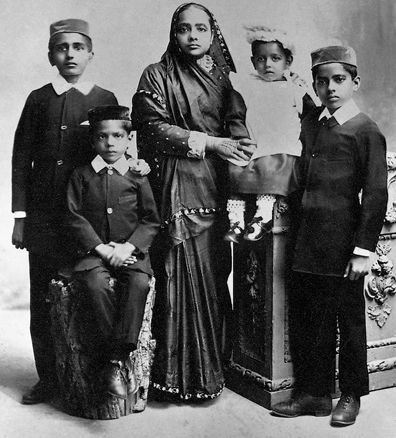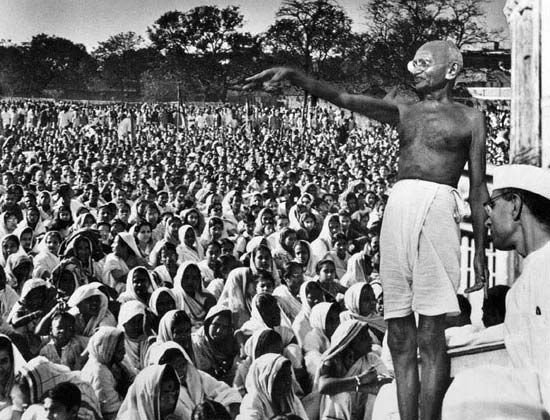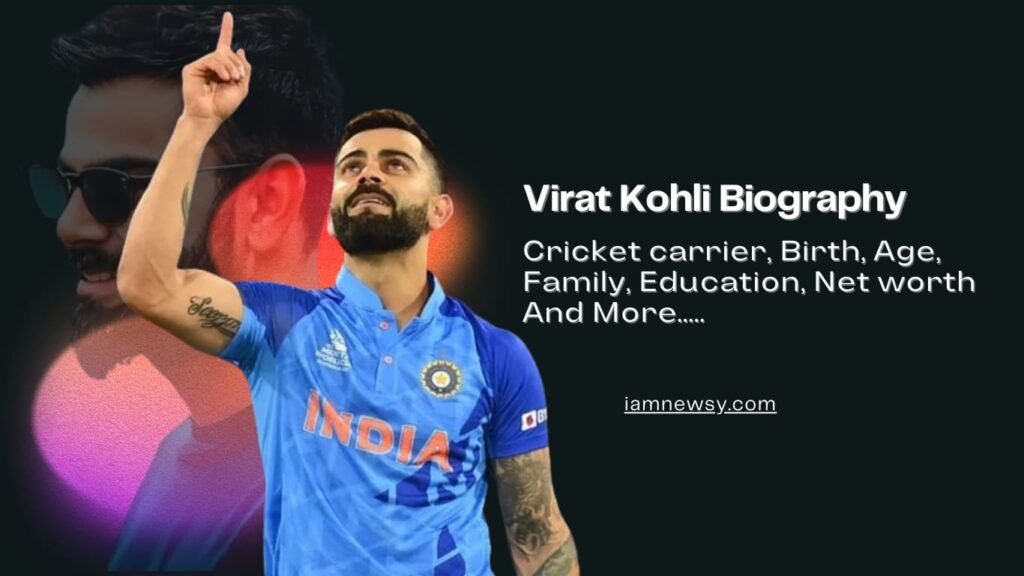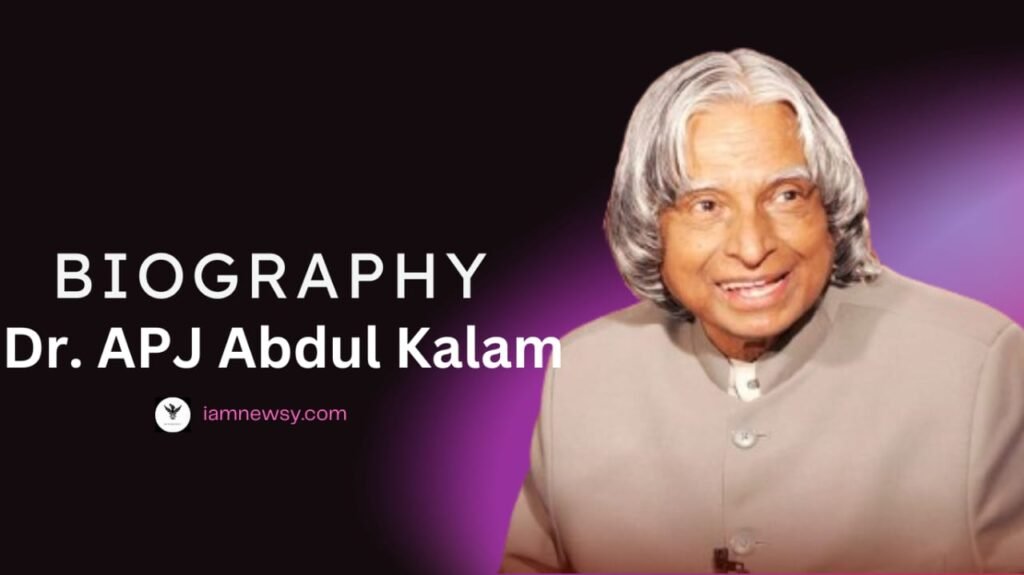Mahatma Gandhi Biography People are still impacted by the life and tactics of struggle of Mahatma Gandhi. A man is considered great when his life inspires others to make positive changes in the world, and Mahatma Gandhi’s life did just that. Many had profound positive life changes after reading about him decades after his death. Let’s examine Mahatma Gandhi’s life, his movements, his well-known quotes, etc. Learn something this Martyr’s Day about him!

Mahatma Gandhi, also known as Mohandas Karamchand Gandhi, was a well-known freedom fighter and a strong, influential political figure who was crucial to India’s fight for independence from British control. He was regarded as the nation’s father as well. He undoubtedly also made a better life for the impoverished in India. Gandhi Jayanti is observed on his birthday each year. Many were affected by his philosophy of truth and nonviolence, which Martin Luther and Nelson Mandela both embraced for their own struggles.
Mahatma Gandhi Biography
Full Name: Mohandas Karamchand Gandhi
Born: 2 October, 1869
Place of Birth: Porbandar, Gujarat
Death: 30 January, 1948
Place of Death: Delhi, India
Cause of Death: Shot by Gun or assassination
Father: Karamchand Gandhi
Mother: Putlibai Gandhi
Nationality: Indian
Spouse: Kasturba Gandhi
Children: Harilal Gandhi, Manilal Gandhi, Ramdas Gandhi and Devdas Gandhi
Professions: Lawyer, Politician, Activist, Writer

Mahatma Gandhi used nonviolent protests to voice his opposition to racial discrimination and injustices in South Africa for roughly two decades. He gained followers in India and beyond for his modest way of life. People referred to him as Bapu, or Father.
Mahatma Gandhi: Early Life and Family Background
Mahatma Gandhi Biography
He was born on 2 October, 1869 in Porbandar, Gujarat. Putlibai was his mother’s name, while Karamchand Gandhi was his father. Mahatma Gandhi married Kasturba in an arranged union when he was thirteen years old. Ramdas, Manilal, Harilal, and Devdas were their four sons. Up to her passing in 1944, she encouraged her husband in all of his undertakings.
In Porbandar, the capital of a minor principality in Western British India (now Gujarat State), his father held the position of Dewan, or Chief Minister. Putlibai, the fourth wife of Mahatma Gandhi’s father, was from a wealthy Vaishnava family. Let us tell you that throughout his early years, the tales of Shravana and Harishchandra had a great impact on him because they mirrored the importance of truth
Mahatma Gandhi : Education
Gandhi attended a local school in Rajkot when he was nine years old, where he learned the fundamentals of math, geography, history, and languages. He attended a Rajkot high school when he was eleven years old. His studies were disrupted for a year or so after his wedding, and he eventually rejoined and finished his education. In 1888, he enrolled in Samaldas College in Bhavnagar, Gujarat. Afterwards, Mavji Dave Joshi, a family friend, went to London to further his education, namely to study law. Gandhiji was not happy with his education at Samaldas College, therefore he was thrilled about the London idea and persuaded his wife and mother that he would never touch ladies, wine, or non-vegetarian food.
Off to London
Mahatma Gandhi went to study law in London in 1888. Ten days after his arrival, he enrolled in the Inner Temple, one of the four legal schools in London, where he studied and began practicing law. He joined a vegetarian society in London as well, and some of his vegetarian friends exposed him to the Bhagavad Gita. Later on in life, the Bhagavad Gita left an impression and had an impact.
Mahatma Gandhi : In South Africa
Mahatma Gandhi Biography
He moved to South Africa in May 1893 to practice law there. There, he encountered racial discrimination firsthand when, despite having a first-class ticket, he was ejected from the train’s first-class accommodation because it was only designated for White passengers; no Indians nor Blacks were permitted to travel in first class. He was deeply affected by this experience, and he made the decision to demonstrate against racial prejudice. He added that he had seen several incidents of this like against his fellow Indians, who were called coolies with contempt.
Gandhi founded the Natal Indian Congress (NIC) on May 22, 1894, and he diligently labored to advance Indians’ rights in South Africa. Gandhi rose to prominence within the Indian community in South Africa very quickly. Ancient Indian literature known as Tirukkural was first written in Tamil and then translated into other languages. This old text also had an influence on Gandhiji. His 1906 nonviolent protest was inspired by the concept of Satyagraha, which is a devotion to truth. After living in South Africa for 21 years, when he undoubtedly campaigned for civil rights and underwent a complete metamorphosis, he returned to India in 1915.
Mahatma Gandhi: Role in the Indian Independence Movement
In 1915, Gandhiji went to India permanently and joined the Indian National Congress with Gopal Krishna Gokhale as his guru.
Gandhi’s leadership of the Champaran and Kheda agitations in Bihar and Gujarat in 1918 was his first significant accomplishment. In opposition to the British administration, he also led the Quit-India, Swaraj, and Civil Disobedience movements.
Mahatma Gandhi: Satyagraha
Mahatma Gandhi Biography
Gandhi called his general strategy of nonviolent protest Satyagraha. Renowned individuals like Martin Luther King and Nelson Mandela were impacted by Gandhiji’s Satyagraha in their pursuit of liberty, equality, and social justice. The Satyagraha of Mahatma Gandhi was founded on sincere ideals and nonviolence.

“Live as if you were to die tomorrow. Learn as if you were to live forever.” – Mahatma Gandhi
Mahatma Gandhi: Death
On January 30, 1948, Nathuram Godse killed Mohandas Karamchand Gandhi. Godse belonged to the Hindu Mahasabha and was a nationalist Hindu. He accused Gandhi of favoring Pakistan and was opposed to the idea of non-violence.
Mahatma Gandhi: Literary works
Mahatma Gandhi Biography
Gandhi wrote a great deal. The following are a few of his literary creations:
- Hind Swaraj, released in 1909 in Gujarati.
- Among the journals he edited were Navajivan, a Gujarati weekly; Indian Opinion; Young India; and Harijan, which was published in Gujarati, Hindi, and English.
- Gandhi also penned The Story of My Experiments with Truth, his autobiography.
- His previous autobiographies covered the Indian Home Rule movement and the Satyagraha in South Africa.
Mahatma Gandhi: Awards
- Time Magazine awarded Gandhi the Man of the Year in 1930.
- Gandhi was listed as one of the top 25 political figures of all time by Time magazine in 2011.
- From 1937 until 1948, he was nominated five times for the Nobel Peace Prize, but he did not win it.
- The Gandhi Peace Prize was established by the Indian government and is awarded annually to notable social workers, international leaders, and individuals. The winner of the prize was Nelson Mandela, the spearhead of South Africa’s fight against apartheid.
“Happiness is when what you think, what you say, and what you do are in harmony.” – Mahatma Gandhi
Mahatma Gandhi: Film
Mahatma Gandhi Biography
In the 1982 film Gandhi, which took home the Academy Award for Best Picture, Ben Kingsley played Mahatma Gandhi.
As a result, Mahatma Gandhi will live on in eternity because of his advocacy of truth, nonviolence, and faith in God in addition to his fight for India’s independence. His approaches served as an inspiration to young people and leaders both inside and outside of India. He is regarded as the most well-known figure in Indian history and the most straightforward dhoti wearer. He taught the Indians how to become independent and propagated the swaraj doctrine.
Facts About Mahatma Gandhi
Mahatma Gandhi Biography
According to the Encyclopedia Britannica, “The United Nations declared Gandhi’s birthday, October 2nd, as the International Day of Non-violence in 2007.”
Under the more modest name Mohandas Karamchand Gandhi, he set out on his path to become the world-famous Mahatma Gandhi, a symbol of peaceful resistance and Indian independence. Mohandas was born in 1869, but his life took a dramatic change when he learned the term that would define his legacy for the rest of his life: Mahatma.
When Mohandas Gandhi was 13 years old in 1883, his life took a dramatic change when he was forced into an arranged marriage to 13-year-old Kasturba Makhanji.
In 1930, the world watched with bated breath as India’s independence movement gained speed under the leadership of Mahatma Gandhi. Time Magazine named him Person of the Year for his unshakable dedication to nonviolent resistance, charisma, and capacity to mobilize millions of people.
Mr. Gandhi was a lifelong vegetarian whose main foods included fruits, seeds, nuts, curd, and fresh vegetables.
Read Biography of apj abdul kalam : The Missile Man’s Journey of Inspiration
Mahatma Gandhi Biography | Mahatma Gandhi Biography | Mahatma Gandhi Biography | Mahatma Gandhi Biography | Mahatma Gandhi Biography| Mahatma Gandhi Biography |

